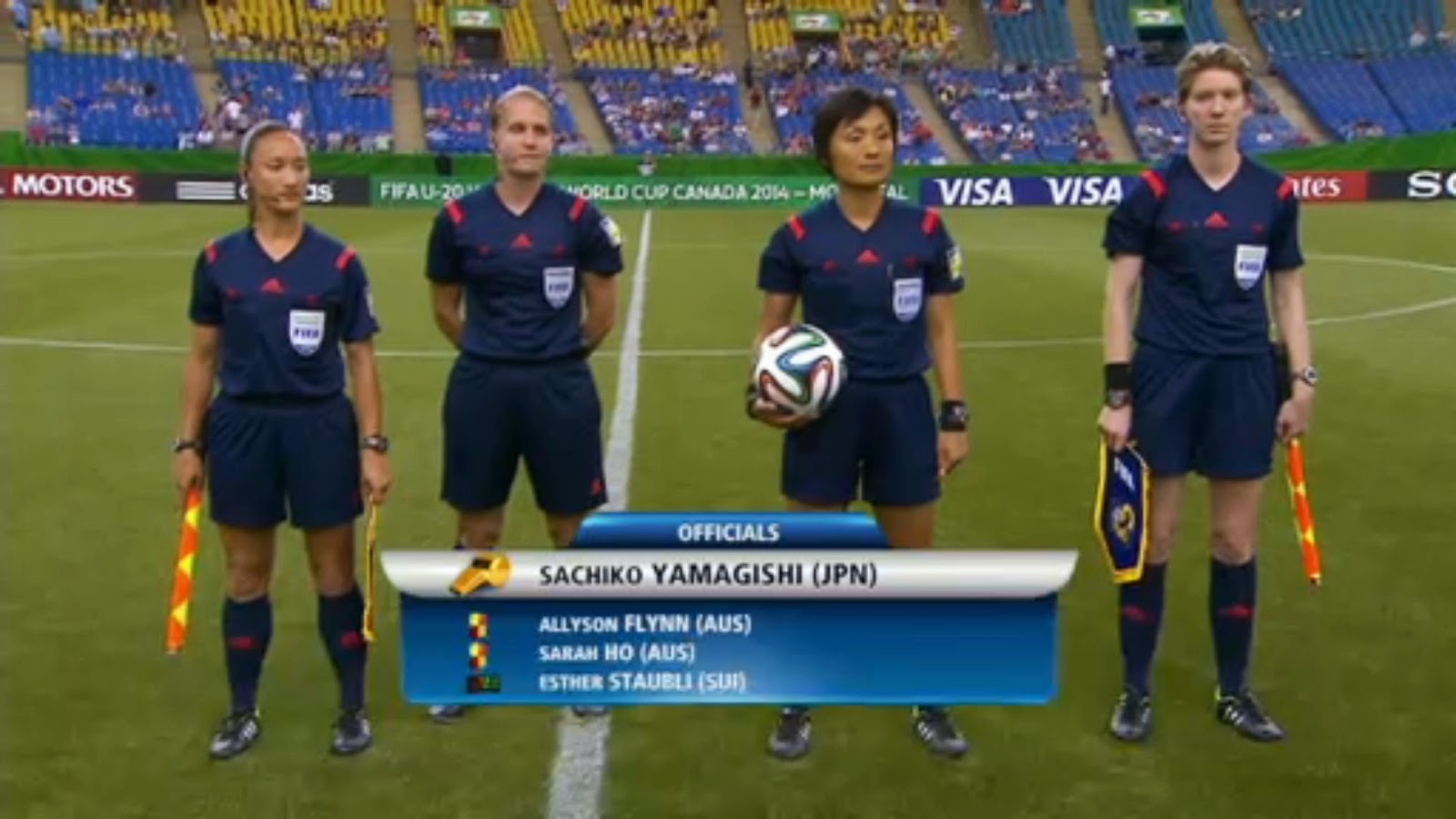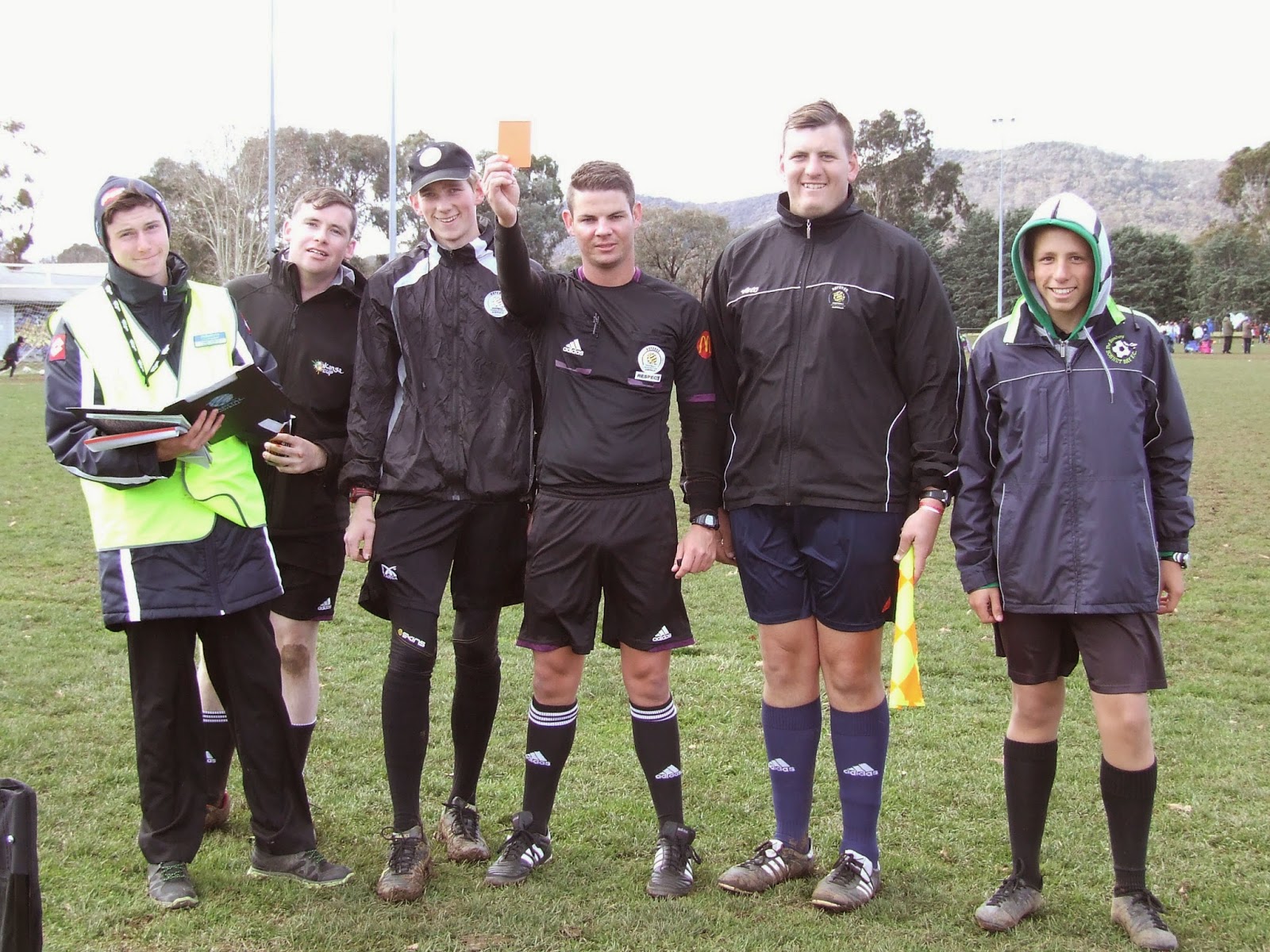Evening everyone,
Hope by this time everyone has gotten 12 hours sleep, sought medical help for those colds / aches and pains and have done a load of washing following this year's Academy at Kanga Cup. Whilst the physical and logistical needs are easily taken care of, it's now time to consider the more complex needs of your brain, namely Post Course / Camp Depression (PCD). Whilst you haven't been to a American Summer Camp, you've taken part in a short, intense
experiential camp program where you've learnt, worked and formed relationships that may be stronger than you realize, similar in many aspects to a traditional camp program (substituting the canoeing / camp songs for officiating / education sessions)
The Academy has evolved over several years to generate quality youth referees for Kanga Cup to support and work along side the Capital Football officials, but the outcomes I believe are longer term for those who take part. Here's why.....
 |
| Darren holding court, Day 1 debrief |
Post Camp Depress is the best example I can find of what occurs to referees after attendance at the Academy. PCD occurs due to several factors. Tiredness, jet lag for some, intensive shared experience unlike any your refereeing friends / colleges or parents can understand. You may know the person you shared a room with better than any other just now, something that parents / friends will find difficult to understand and accept. You may have made connections to mentors / coaches unlike any you've previously had; different structures of living for the week (rigid schedules, expectations, purpose); strong supportive atmosphere of positive encouragement; refereed matches of higher quality and diversity than you'd be given at home.
You may have changed. Not physically, but you may be more confident, walk just that bit more confidently, have more tools in your toolbox for dealing with difficult situations on the field, have new ideas about your refereeing goals / careers that others will not understand fully - they weren't part of the group, weren't in "the room" at the AIS. It's a combination of shared experience in a close group that is unique and therefore special to you and will be difficult for you to explain to others.
Your transition back to everyday life
might be difficult. You may be back at school / work / university this week, after what was a very different week and perhaps your first time independently away from parents / carers. The Academy demands early starts, long 16 hour days, physically and emotionally draining, intensive assessments, education sessions and feedback and constant communication with people who were strangers on Saturday evening but might now be close friends. And now suddenly your expected to be back into your routine of school, sports, friends, and family - the Academy experience is finished.
Solutions to PCD are varied. Some blogs indicate keeping busy - school, regular life, ensure your back refereeing this weekend in your local leagues (applying your new knowledge / confidence), attend your monthly coaching meeting. Make a effort to be more involved in your refereeing career - it promotes yourself and also reflects that Kanga had a positive impact on you, without saying it.
And I always say to my students following a longer outdoor education program, talk at length to your parents / close family / carers about your experience. They
ARE ALWAYS interested in not just what you did (U/12 final), but more about who you've become and what new ideas you have about the world. Parents love to know about the lives of their children, so share it when you feel ready. If you haven't yet had that conversation, make time later this week or next when your ready to discuss it casually over dinner or a quite time with Dad / Mom / Gran / Uncle. Sometimes talking with people not closest to you are able to listen the most. Your referees mentor / coach are also good listeners and could acknowledge your experiences easier as they may have been there, done that in their youth. If you don't yet have a mentor, ask someone in your branch about it.
And be aware - Kanga Cup and your participation may not be fully supported by your local coach / branch / State even if you did "The Grand Final". There is lots of reasons for this, but just be patient. Cream always rises to the surface and your accomplishments will be known, even if not publicly acknowledged.
If you need support, there are many coaches / assessors happy to help talk you through it - reach out to
Capital Football and I'm certain they will support you further.
 |
| Brendan, William, David and Rodney - coaches and mentors for KCRYA14 |
PCD doesn't last - like all things, it'll pass with time and distance from this years Academy. It'll resurface with pictures on Facebook /
Flickr or when you get a message from someone online / FB request. You
might return in 2015, but your journey may be directing you in twelve months towards new directions (National Titles, National Talent Pool, more local development opportunities) that are more challenging than what Kanga Cup can offer. Seek out these options (Kanga Cup
WILL continue without you) if they are relevant to your development stage.
But regardles, Keep those friendships and networks going - it's much easier now than when I was at your level (before the internet). Start a email / FB / blog discussion about your next games, how your improving weekly, achievements at Finals and if your keen, send me notes - happy to promote Academy Alumni achievements here in future posts.
Give yourself time to reflect on your Magic Moments and what you've learnt to take forward from KCRYA14. And remember, it's just a step in your LONG journey, not the destination.
More pictures online overnight and tomorrow as they roll in, working on where to put video.
Cheers
KangaCupRef
Here's some links to PCD for your reading and interest, some ideas I've borrowed for this post.
http://southpawprodigal.blogspot.com.au/2013/12/thoughts-on-post-camp-depression-part-2.html
http://bdgarberphd.wordpress.com/2012/10/24/summer-camp-syndrome/
http://campcounselors.wordpress.com/2013/10/14/post-camp-depression-is-real-heres-how-to-deal/











































